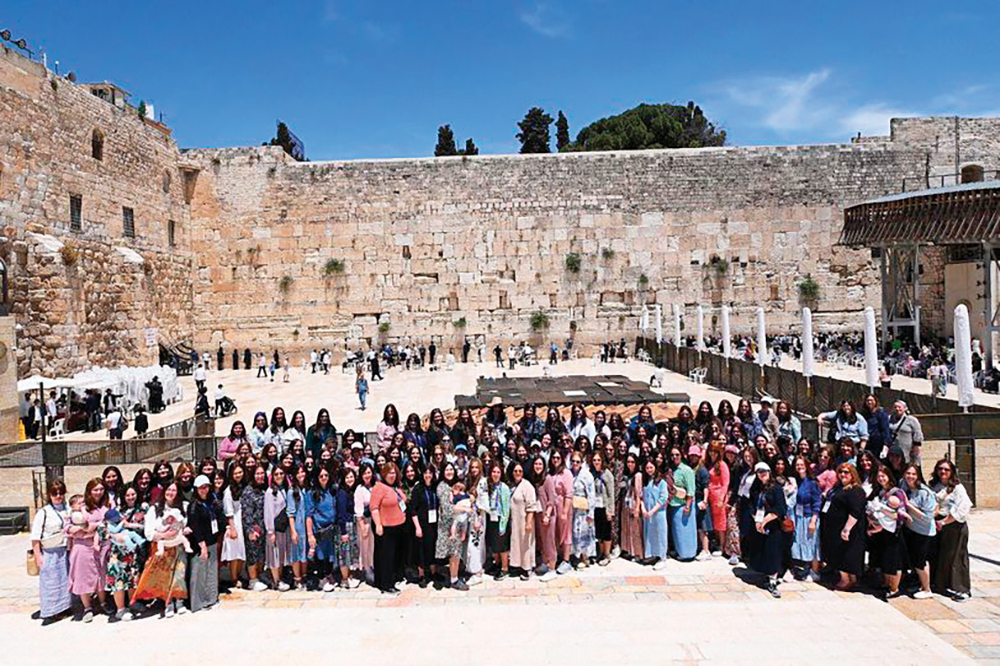
Rebirth of Hope in The Jezreel Valley
Ophir Basor, a dedicated farmer from Kibbutz Ein Harod, has begun the annual wheat harvest. This year, we have come to appreciate the profound value of agriculture in our land. With Shavuot, the harvest festival, fast approaching, the agricultural activity on this kibbutz pulses with the same rhythm that has persisted since biblical times. We can easily imagine Ophir’s ancestors harvesting wheat in this very place, in the Jezreel Valley, just before Shavuot thousands of years ago.
Ein Harod stands as a symbol of classic secularism, having been the heart of the kibbutz movement, which initially minimized the importance of religious practice. Yet today, as Ophir began harvesting the kibbutz wheat, he declared, “L’shem matzat mitzvah.” Remarkably, this farmer from a traditionally secular kibbutz is designating his entire wheat crop for matzah production.
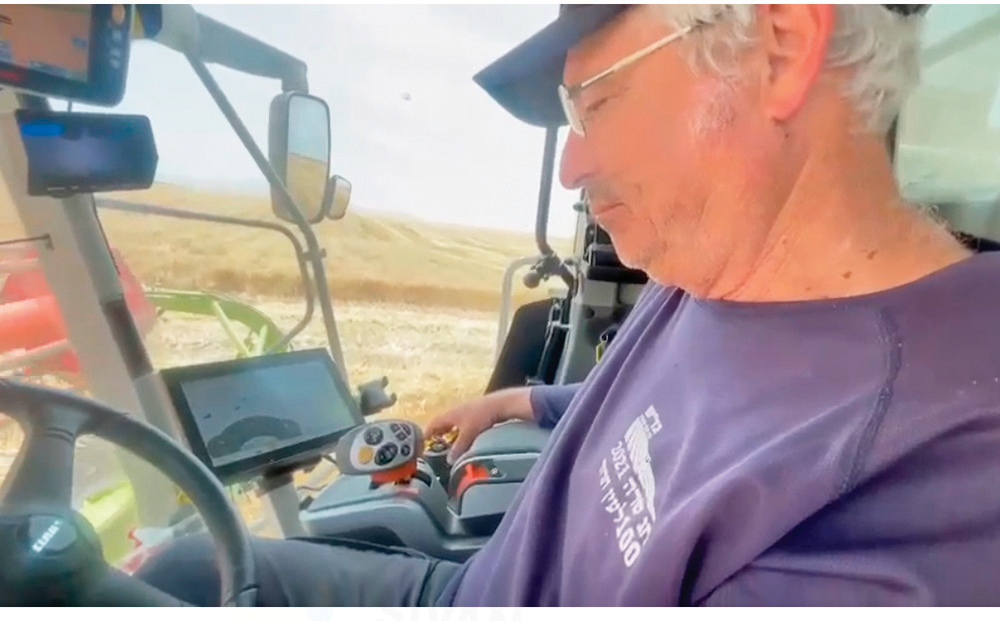
And when will this matzah, made from Ein Harod’s wheat, be eaten? Next Pesach, nearly a year from now. This optimistic and forward-thinking mindset, characterized by the founders of Ein Harod who made the wilderness bloom, lives on. Just as the wheat grew here in ancient times, it grows here today, symbolizing a continual rebirth of hope in anticipation of the next chag haPesach.
Nikki Haley in Israel
While my news feed was flooded with pictures of the recently convicted Trump, Jerusalem photographer Arnon Busani suddenly sent me this lovely picture of former Republican presidential candidate Nikki Haley. I don’t understand how, out of 330 million Americans, Biden and Trump are the only two options; just as I don’t understand how we haven’t heard more about Haley’s amazing Israel visit, organized and hosted by MK Danny Danon. The attached photo was taken at the Kotel after she visited the south and the north, IDF bases, and families of captives and fallen soldiers.
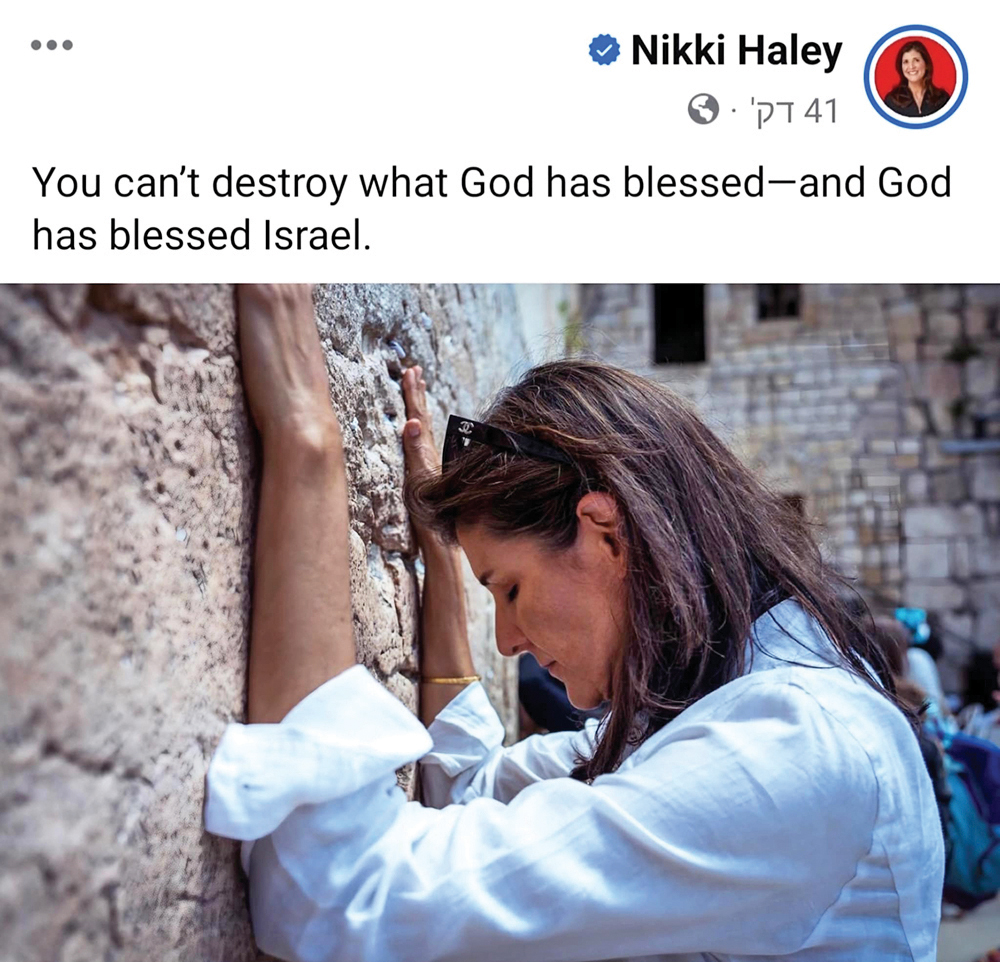
“I want all Israelis to know that I represent most Americans when I say: You are doing the right thing,” she said. “You are fighting pure evil. After all, these terrorists are shouting ‘Death to America’ too, not just to Israel. We shouldn’t be preaching to Israel, we shouldn’t be telling them how to win the war, we shouldn’t be telling them what they can or can’t do. We should just be saying, ‘What else do you need?’ Bottom line? That’s it. That’s what I want to see America do: be a friend, a true friend.
There are a lot of countries in the world that are wrong because they’re siding with the terrorists, and that needs to end. And we need to acknowledge the fact that the last thing Israel needs is for us to go stab them in the back when they’re already down.”
When asked about her visit to the Kotel, Haley said, “It is the place that represents complete truth, everything that is sacred, our values. Jerusalem is a place that reminds us that we are still in the middle of the journey, but in the end, we will get to where we need to be. Just keep this faith.”
If that wasn’t enough, Haley posted a photo of herself at the Kotel and tweeted, “You can’t destroy what God has blessed—and God has blessed Israel.”
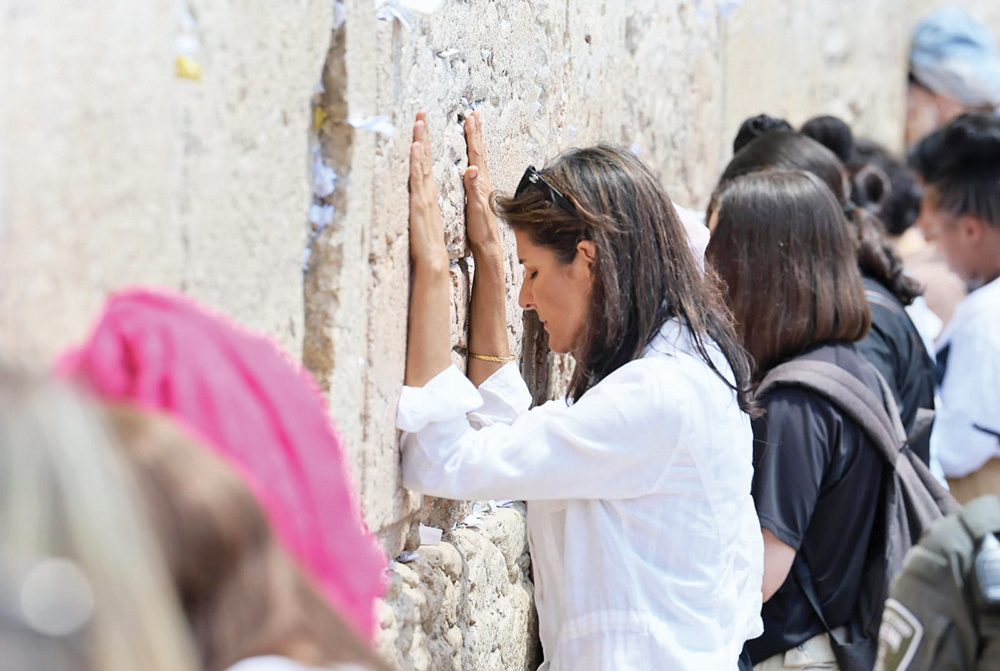
Doing the Right Thing
It’s after midnight, and I’m finding it hard to settle down. I’ve just finished meeting with the heads of Jewish student groups from North American campuses, who have come to Israel on a solidarity mission. In the coming week, they’ll tour the country, meet with the Prime Minister, the President and other senior officials.
The Olami organization, which organized the mission, requested that I listen to the short speeches they prepared in order to ensure the accuracy of the messages they are hoping to convey. We listened to testimonies from students from 25 top-tier universities.
Since October 7, campuses in the US have been turned into war zones, bastions of antisemitism, and Hamas cells. We heard about a student who was hospitalized after being physically assaulted; another student who left the dorm after someone sprayed a swastika on his door and ripped off his mezuzah; daily incidents of violence, threatening slogans, and spitting; and friends who turned into enemies. Last October, statements like: “Too bad Hitler didn’t finish the job,” shocked them. By now they’re used to it.
At the end of the evening, I asked, “Was this the most depressing evening of your lives?” They were all emphatic in their response. No, they affirmed. In fact, they had never felt so connected.
For three of the student leaders, it was their first trip to Israel, a visit they said would never have happened if not for October 7, which they dub their “personal wake-up call.” Three students are planning on making Aliyah, and four others have set up organizations dedicated to educating Jews and combating antisemitism.
A Columbia University student shared: “I look at Jews who are hiding their Jewish identity and I feel ashamed for them. I’ve been verbally abused, I argued with professors, and had to file complaints of harassment with the police, but the truth is, I’ve never felt more alive. There is no better feeling than knowing that you are doing exactly the right thing, at exactly the right time.”
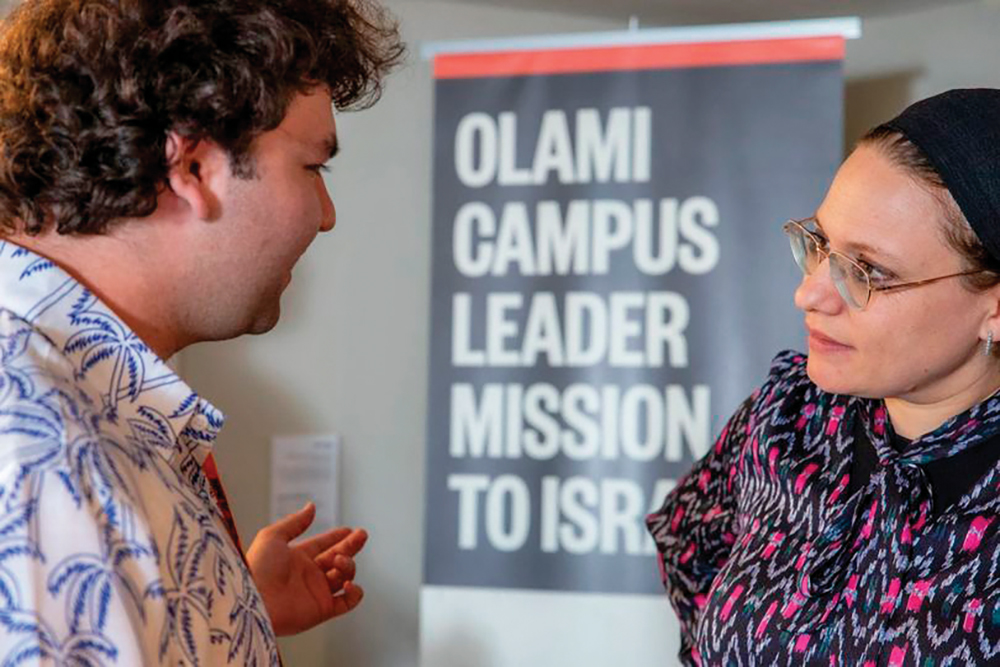
Chabad Annual Conference
I spent last Shabbat with 150 Chabad shluchot from university campuses throughout the world. This year, they decided to hold their annual conference in Israel. Needless to say, it has been a very challenging year for them, punctuated by rabid antisemitism and constant lies that are spread about Israel and Jews.
But they also shared the proud Jewish and pro-Israel response to the belligerent atmosphere. As one shlucha from a US campus expressed, “Not long ago, an ‘Israeli Apartheid Week’ was advertised on campus. My husband said, ‘Great! Now I’ll need to get more mezuzot and tefillin for the students. I’m also sure that many students whom we’ve never seen before will join us this Shabbat meal.’ And that’s exactly what happened. We’re seeing with our own eyes how the darkness increases the light.”
*Translated by Yehoshua Siskin, Janine Muller Sherr
Want to read more by Sivan Rahav Meir? Google The Daily Thought or visit sivanrahavmeir.com
Sivan Rahav Meir is a primetime news anchor on television and radio. Her “Daily Thought,” translated into 17 languages, has hundreds of thousands of followers on social media. She has a weekly podcast on Tablet, called “Sivan Says,” and has published several books In Hebrew and English. Sivan was chosen by Globes newspaper as Israel’s most popular female media figure and by the Jerusalem Post as one of the 50 most influential Jews worldwide. She lives in Jerusalem with her husband Yedidya and their five children.








